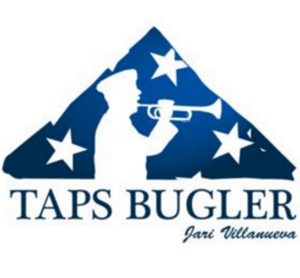The question on the Feb 22, 2021 episode of Jeopardy had the question:
“Just 24 notes, this piece is nicknamed “Butterfield’s Lullaby” for the US Army General who arranged it.”
This got me thinking of a few things. The term “Butterfield’s Lullaby” has been associated with the bugle call Taps for some time. I’ve heard many references to it as being the name of the call for lights out that was written during the Civil War. Certainly, General Daniel Adams Butterfield is associated with the call as he is the one who, as corrected noted in the question, arranged it. What he did was to take an old bugle signal that had gone out of use by the Civil War and rework the last part into the 24 notes we know today as Taps.
For a full accounting of the history of Taps CLICK HERE
I have heard many people refer to Taps as “Butterfield’s Lullaby” but have not use the term in any of my writings because I cannot find any contemporary references to the term. Daniel Butterfield and Oliver Willcox Norton (the bugler who first sounded the call) never allude to the call by that name.
My thought is that Taps was never called “Butterfield’s Lullaby,” until authors John Pullen and later Michael Sharra exercised a bit of artistic or literary license.
John Pullen in his 1957 book, The Twentieth Maine, writes about Taps, “Then, down through the years in its true sense, comes Butterfield’s Lullabye, (sic) the one expression of tenderness the army ever allows itself.”
This may be the first time Taps was ever called that.
In his 1974 novel Killer Angels, Michael Shaara writes about how the brigade call for Vincent’s Brigade (3rd Brigade, 1st Division, 5th Corps) came about and includes a reference to “Butterfield’s Lullaby”
“Well, in this Brigade we got a special call. You hear that call and you know the next call is for you. Goes like this: “We call it ‘Dan Butterfield,’ just like this: ‘Dan, Dan, Dan, Butterfield, Butterfield.'” The Maine man said glumly, “In the middle of a fight I’m supposed to remember that?” “It’s easy if you remember.” He sang it again: “Dan, Dan, Dan, Butterfield.” “Um,” the Maine man said. “Ole Butterfield wrote a lot of bugle calls. You know Butterfield’s Lullaby?” “Butterfield’s what?”
Tom hummed a few bars of what was still known as Butterfield’s Lullaby but which the army would later know as “Taps” and which now had no connotation of death, which simply meant rest for the night, rest after a long day in the dust and the sun, with the bugles blaring, and Joshua Chamberlain, listening, thought of the sound of Butterfield’s Lullaby coming out of the dark, through a tent flap, with the campfires burning warm and red in the night, and Chamberlain thought: you can grow to love it.”
Daniel Butterfield is credited with composing Taps and the special prelude call for that brigade which is mentioned in the scene from the movie “Gettysburg” (based on the Sharra novel) which depicts the origin of Brigade Call and Taps. One the thing the young Lieutenant, Tom Chamberlain, gets wrong is singing one too many “Butterfield.” Outside of that the description is accurate. He also goes on to describe Taps as “Butterfield’s Lullaby.”
Read about Daniel Butterfield here: https://www.tapsbugler.com/daniel-adams-butterfield/











[…] post Butterfield’s Lullaby appeared first on Taps Bugler: Jari […]